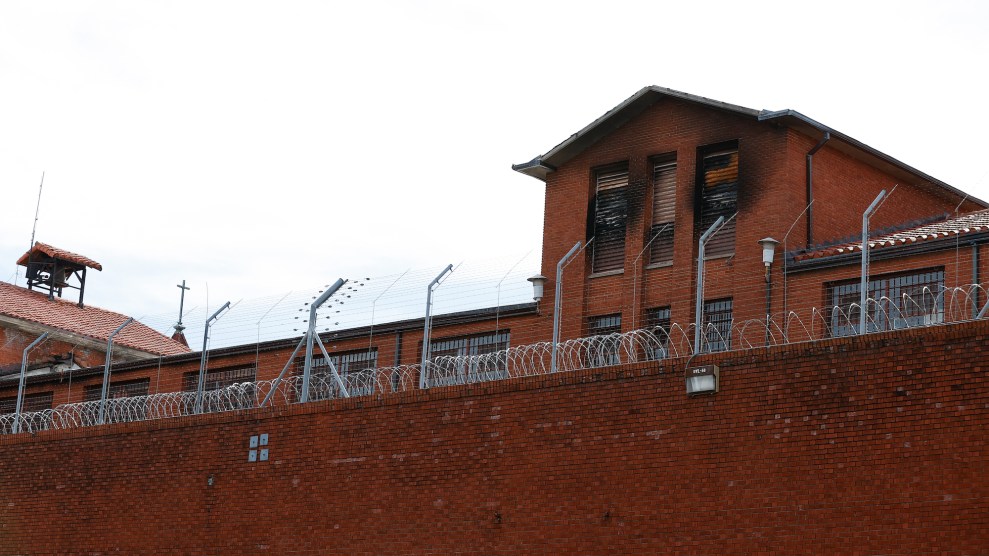For drug war skeptics and civil libertarians, Wednesday was a good day. For law enforcement hawks, it was, potentially, pretty terrifying. Speaking before the US Sentencing Commission—the body charged with drawing up sentencing rules for federal courts—Attorney General Eric Holder said that the Obama administration favors retroactively applying reduced penalties for federal crack-cocaine offenders “who are not considered dangerous drug offenders,” reports the Wall Street Journal.
Bridging the disparities built into the drug crime-sentencing system has been a cornerstone priority for the Obama administration. Last August, the president signed into law the Fair Sentencing Act, which reversed 1980s-era rules mandating stricter sentences for crack-cocaine crimes than for those related to powder cocaine. Under the older, harsher rules, defendants faced a minimum five-year prison term if convicted of possessing just five grams of crack; in contrast, it took 500 grams of powder cocaine to draw the same sentence.
Those rules were broadly decried as racist (their conservative proponents notwithstanding): most people sentenced for crack charges are black, while those hit with powder-cocaine raps tend to be white or Hispanic. The new guidelines upped the amount of crack cocaine that would require a five-year mandatory minimum sentence to 28 grams, and the amount triggering a ten-year mandatory minimum to 280 grams.
But Holder’s recommendation to grant softer standards to those already convicted is sure to draw strident protest from conservatives. Consider:
If the new guidelines are applied retroactively, 12,040 offenders sentenced between Oct. 1, 1991 and Sept. 30, 2010 would be eligible to seek reduced sentences, according to Sentencing Commission research. About one-third of the group would be eligible for release, if approved, by Nov. 1, 2012, while the releases as a whole would be spread over 30 years. The average sentence would be reduced from 164 months to 127 months, Commission data showed.
Those prospects are pretty upsetting for some Republicans. Rep. Lamar Smith (R-Tex.)—who also opposed the Fair Sentencing Act—said that the administration’s newly announced position “sends a dangerous message to criminals and would-be drug offenders that Congress doesn’t take drug crimes seriously.” And Sen. Chuck Grassley (R-Iowa) also thinks Holder’s recommendation was a “bad idea.”
For its part, the DOJ said that it wouldn’t grant softer sentences to offenders who had used weapons in their crimes, or to those who boasted lengthy rap sheets. But its position could confirm the right’s worst fears about fairer sentencing and prison reform, especially in the wake of the Supreme Court’s recent 5-4 ruling that overcrowding in California’s prisons is so bad that it violates the Eighth Amendment’s ban on cruel and unusual punishment. That decision is expected to result in the release of some 30,000 California prison inmates.
Obama obviously didn’t have a hand in that. But for conservatives bent on characterizing him as a soft-on-crime liberal, that might not matter.















